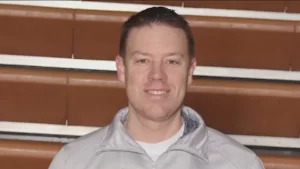Immigrants shed light on difficulties of American culture
November 7, 2018
Room 364 during 6th period is different than a usual resource classroom: students are talking, playing games or watching videos. But what stands out the most is that a majority of these students speak a different language.
Junior Mihal Jovanov moved to America two years ago because of the economic benefits.
“It’s a better country. You get paid more for jobs,” Jovanov said.
As soon as Jovanov arrived, he felt welcomed and at home.
“I packed all my stuff, like clothes and nothing else, and as soon as I landed, I felt like I had been here before. It didn’t feel different,” Jovanov said.
Sophomore Bogdan Kozak moved here from Ukraine two and a half years ago for similar reasons.
“[There are] more opportunities. There are not a lot of jobs. It’s a better quality of life. Your money can go farther,” Kozak said.
Learning English may be a challenge depending on the student and their background. For instance, Jovanov grew up learning six languages.
“I have been learning English since kindergarten. [I know] Macedonian, Serbian, Croatian, Bulgarian, Bosnian and English. You grow up with it. You watch cartoons and you speak with people,” Jovanov said.
Senior Iva Petkovska, who is Jovanov’s cousin, can speak 5 languages.
“[I know] Macedonian, English, Serbian, Bulgarian, Croatian,” Petkovska said.
Other students, such as freshman Daniel Chepil, did not know any English.
“It was pretty hard because in my school there was a bunch of people that were bullying me,” Chepil said.
These students are just a small part of the English as a second language program, or ESL. Among the 40 students in ESL, 10 different languages are spoken, including Spanish, Arabic and Urdu.
One of the biggest differences that the students noticed is that school back home is much stricter than in America.
“School’s really hard. Anything you can imagine about school, everything here is different. Even the boards. Also, teachers are allowed to say you can’t pass without showing any proof,” Jovanov said.
The biggest difference they notice is their social lives.
“In Ukraine, I was never shy there. Here, it feels like if you make a mistake, the whole class will start laughing at you,” Chepil said.
Petkovska thinks that the way she and her friends interact is different from what it was like back home in Macedonia.
“Here, you can’t make a real connection. Maybe you can call someone your friend, but for example, I have friends here who are afraid to hug me,” Petkovska said.
Jovanov believes that the connections he has made with friends in Macedonia are deeper than the connections he has made here.
“Friendships here are not the same. I wouldn’t even consider them friendships. [In Macedonia] they are like family. You know everything about them, they know everything about you,” Jovanov said.
With these students coming from an abundance of backgrounds, they don’t have much in common because of traditions, languages, and circumstances. However, when asked if they ever wanted to go back, all of them said no.
“I don’t want to live there, but I want to spend time there,” Jovanov said. “I wouldn’t go back because of work.”
Whether trying new variations of Uno they have taught to one another or interacting with American students and teachers, room 364 and the ESL program has become a liaison into society for DGN’s international students.

























